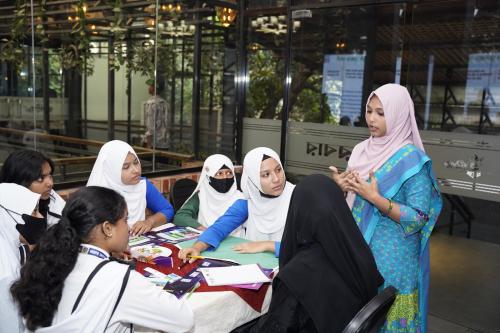

9:00 am EDT - 11:00 am EDT
Past Event
9:00 am - 11:00 am EDT
1775 Massachusetts Avenue N.W.
Washington, DC
20036
More than half of the world’s children are growing up in cities. Yet, children and families are often invisible to urban planners, developers, and architects when implementing policies and practices that shape the built environment.
Playful Learning Landscapes (PLL) is a culturally adaptable and sustainable approach for creating more child-friendly cities by augmenting opportunities for play, learning, and healthy development in the public realm.
On Wednesday, October 12, Brookings Bass Center for Transformative Placemaking and the Center for Universal Education, in partnership with Playful Learning Landscapes Action Network (PLLAN), hosted an in-person and virtual event to examine how cities are infusing playful learning in their communities. The event kicked off with an opportunity for attendees to interact with PLL activities and then featured panel discussions on community engagement and measuring the impact of playful learning in public spaces.
Viewers submitted questions by emailing [email protected] or tweeting to @BrookingsMetro using the hashtag #PlayfulLearningLandscapes.

Emily Gustafsson-Wright, Ema Eguchi, Elyse Painter, Victoria Arciniegas Gomez, Leydi Maldonado
June 30, 2025

Jennifer L. O’Donoghue, Christine Apiot Okudi, Ellen Chigwanda, Adefunke O. Ekine, Dasmine Kennedy, Joyce Kinyanjui, Pamhidzayi Berejena Mhongera, Sumbal Naveed, Mary Otieno, Jamila Razzaq, Atenea Rosado-Viurques, Nasrin Siddiqa, Tran Thi Ngoc Tran
June 30, 2025

Jennifer L. O’Donoghue
June 30, 2025